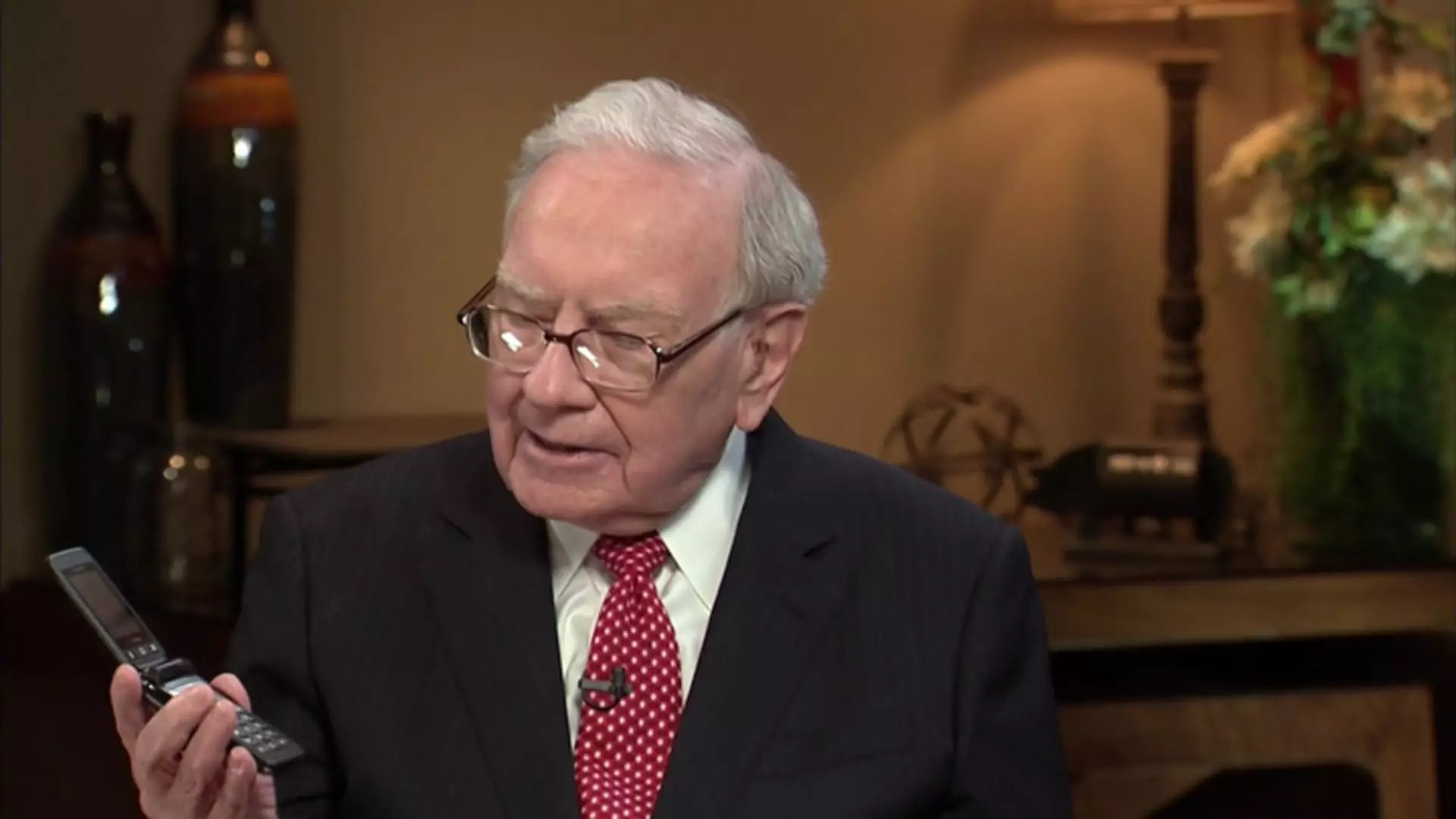Warren Buffett, renowned for his investment acumen, has long posed a challenge for human investors attempting to mimic his successful strategies. Despite their earnest efforts, many have floundered, leading to a track record of inadequate replicas. Now, the realm of finance finds itself facing a new contender: artificial intelligence. The emerging investment startup Intelligent Alpha aims to harness the power of AI technology to emulate Buffett’s investment philosophy through its forthcoming Intelligent Omaha ETF, branded with the ticker symbol AIWB. However, the question lingers: Can an algorithm realistically encapsulate the essence of a legendary investor?
How Intelligent Alpha Works
The heart of this endeavor lies in the intricacies of machine learning. Intelligent Alpha has developed a method to program three different large language models—GPT, Gemini, and Claude—with extensive data tailored to Buffett’s investment principles. This trove of information includes a spectrum of publicly available materials, such as Buffett’s iconic annual letters dating back to the 1960s, various public engagements, and crucial regulatory filings like 13Fs, which disclose Berkshire Hathaway’s equity investments. Intelligent Alpha’s CEO, Doug Clinton, emphasizes that accurately training AI to reflect Buffett-like reasoning can be achieved by providing it with a comprehensive context of the investor’s worldviews. But this raises further concerns about the depth of understanding an AI can possess regarding Buffett’s evolving strategies.
Buffett’s Unique Evolution
Buffett’s investment style is anything but static. Initially, he was known for his “cigar-butt” investing approach—seeking out undervalued securities for short-term gains. However, the influence of his long-time partner, Charlie Munger, gradually pivoted his focus toward acquiring high-quality companies with sustainable competitive advantages, or “wide moats.” This transformation highlights an essential aspect of Buffett’s methodology: adaptability. The aging tycoon has traversed a vast landscape of market dynamics and investment paradigms over several decades, evolving with the trends and sometimes even reshaping them. Consequently, garbing artificial intelligence in Buffett’s investment philosophy prompts inquiries about how flexible AI systems can be in responding to market shifts like a seasoned human investor.
The Performance of AI-Driven Investments
Intelligent Alpha has conducted tests of its strategy for around six months, and the results appear promising. The portfolio crafted by AI is anticipated to mirror around 30% to 60% of Berkshire Hathaway’s holdings, albeit with distinct weightings. The Intelligent Omaha ETF, set for launch within the upcoming six months, promises an expense ratio of 69 basis points. However, as potential investors weigh the benefits, they need to consider whether an AI-powered investment can really outperform traditional investing methodologies. Recent trends in AI have been met with both enthusiasm and skepticism, leading to uncertainty regarding the sustainability and efficacy of these technological advancements in real-life applications.
The Intelligent Omaha ETF is not an isolated case. Intelligent Alpha has also introduced the Intelligent Livermore ETF, which invokes investment strategies from a range of illustrious investors, including Buffett himself. The inception of these products suggests a broader trend where financial institutions are increasingly integrating AI systems to entice a new generation of investors eager to leverage cutting-edge technology. However, as the appeal of AI grows, so too does the conversation surrounding its long-term viability. The frenzy over AI and its potential to disrupt various industries culminates in both excitement and wariness about achievable gains versus looming risks.
Doug Clinton envisions Intelligent Alpha evolving into a prominent force in the investment landscape—comparable to BlackRock—by pioneering AI-driven funds. However, as investors ponder the future, one must ask whether AI can ever fully encapsulate the nuances of human experience, intuition, and judgment that play a vital role in successful investing. The synthesis of traditional wisdom with revolutionary technology stands at the forefront of finance but continues to provoke discourse about the essence of investing itself. Ultimately, the endeavor to emulate Warren Buffett’s strategies through AI possesses the potential for innovation, but the enigmatic nature of true investment mastery remains a challenge that algorithms may struggle to overcome.

